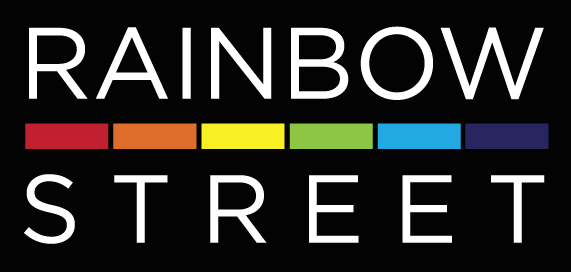Fighting Trump's #RefugeeBan
/On Friday, January 27, President Trump signed an executive order aimed squarely at limiting the number of Muslims—particularly refugees—that come peacefully and legally to the United States.
By now you’ve heard how this blatantly unconstitutional ban suspends entry to the US and halts the issuance of US visas to citizens of Iraq, Iran, Syria, Libya, Yemen, Sudan, and Somalia. It also orders the US to turn its back on the most vulnerable people in the world by suspending all refugee resettlement in the United States for at least 4 months, lowering the annual cap of US refugee resettlements from 110,000 to 50,000, and indefinitely suspending all Syrian refugees from being resettled in the US.
The refugee ban in particular is devastating to Rainbow Street beneficiaries and all LGBT people struggling to survive in the Middle East and North Africa.
For most LGBT refugees, resettlement in the US is the only option. In a region where every day brings the risk of kidnapping, detainment, torture, and murder, time is of the essence. But the recent ban not only halts all refugee resettlement for 4 months; it removes the priority historically given to exceptionally vulnerable cases, including LGBT individuals.
After massive protest at airports throughout the country, two federal stays were issued, temporarily barring the federal government from removing lawful immigrants—including green card holders—who had arrived after the ban was signed.
But the ban on refugees still stands intact, acutely threatening the lives of LGBT people who are currently in resettlement limbo.
Rainbow Street is fiercely committed to working alongside local activists to protect LGBT refugees living in crisis in the Middle East and North Africa. In nearly all cases, this requires resettlement in a third country. At present, Rainbow Street beneficiaries are at various stages in the lengthy and uncertain resettlement process, mostly with the expert assistance of the International Refugee Assistance Project (IRAP).
To our great relief, Rainbow Street beneficiaries aimed at resettling in the United States made it safely to US soil before the ban was signed, one as recently as last Wednesday. Other beneficiaries are on track to be resettled in non-US countries, or are yet to learn where they’ll be resettled.
But the recent actions of the Trump administration will still have a huge impact on Rainbow Street’s work as we strive to offer our protection to more displaced LGBT people. Here’s how:
- Gridlock. For LGBT refugees, time is of the essence. Such a deep cut in the annual resettlement cap, along with a 4-month (minimum) delay on all US resettlement, will mean more refugees living in limbo, and for longer periods of time.
- Deprioritization. In the past, the US resettlement program has granted priority to exceptionally vulnerable groups, including religious minorities and LGBT individuals. Trump’s administration has made clear their commitment to prioritizing Christian refugees even in the midst of the current refugee ban. But the same protection has not been extended to LGBT cases.
- Goodbye, State Department. Not all refugee resettlement cases are straightforward. For the trickier ones, Rainbow Street has cooperated with the US Department of State to find opportunities for our beneficiaries to resettle in the US outside the typical UNHCR channels. But with much of the State Department senior staff having recently resigned, the Trump Administration will likely be closing off these channels as well. This will leave many LGBT refugees in a state of bureaucratic neglect.
The ban forces us to consider new resettlement strategies moving forward. For one, we’ll be contacting individuals and NGOs throughout Canada and Europe to investigate resettlement pipelines to non-US locations. (If you have a contact that might be interested in working with us, let us know.)
There’s also much that you can do to support LGBT refugees in this historic moment:
1. Voice your dissent with Rainbow Street on Sunday, February 5
Join fellow activists in the San Francisco Bay Area as we get together to send letters to our elected officials this Sunday from 12-3pm in Oakland. All stationery, postage, templates, and food provided. Details and RSVP.
If you’d like to host a satellite event in your city, contact us!
2. Table with Rainbow Street on Sunday, February 12
Represent Rainbow Street at the Oakland Peace Center’s Activism + Advocacy Resource Fair form 11am-4pm on Sunday, February 12. All materials and talking points will be provided. This is an excellent chance to learn about many impactful organizations! Info and RSVP.
3. Urge your elected officials to resist the ban
We must hold our elected officials accountable for this atrocious ban on refugees. Call your White House, your representative, and your Senators and demand an end to the ban. Learn more
4. Stay informed. Stay involved.
Don’t miss out on opportunities to stay informed and involved. Sign up for occasional updates from Rainbow Street, like us on Facebook, and follow us on Twitter. IRAP’s Policy Action Alerts are also a great way to stay current on issues of refugee resettlement.
Once you’ve signed up for these updates, show your support on social media with the hashtag #withLGBTrefugees!
5. Make a gift to Rainbow Street
Now more than ever, Rainbow Street is needed and needs your help. Make a gift today to keep hope alive for LGBT refugees in the Middle East and North Africa. Your donation will get LGBT refugees into safe housing and connect them to immediate care.

















